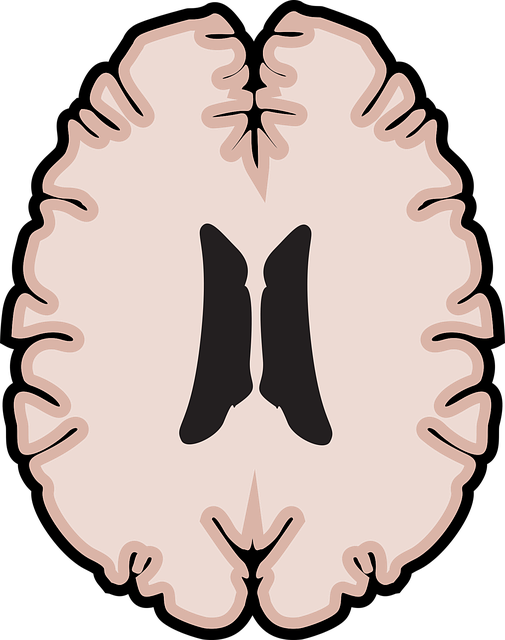Englewood Crisis Counseling Therapy leverages mental health data analysis as a foundational step in their service delivery, utilizing clinical notes, assessment scales, and client self-reports for comprehensive insights. Through advanced analytics, they decipher intricate trends, demographics, and cultural influences to inform targeted interventions, policy decisions, and community emotional healing. This data-driven approach enhances treatment effectiveness, reduces disparities, and promotes tailored care, as demonstrated by their successful reduction of depression recurrence rates. Their systematic interpretation allows for proactive risk management and comprehensive treatment plans, ultimately improving patient outcomes.
Mental health data analysis is a powerful tool for understanding and improving individual and community well-being. This article explores key aspects of mental health data, from collection and overview to analyzing trends and interpreting results. We highlight the impact of data interpretation on treatment strategies and present case studies showcasing successful initiatives, such as Englewood Crisis Counseling Therapy, demonstrating how evidence-based analysis can drive effective support systems.
- Understanding Mental Health Data: Collection and Overview
- Analyzing Trends: Uncovering Insights through Data
- Interpretation and Its Impact on Treatment Strategies
- Case Studies: Englewood Crisis Counseling Therapy in Action
Understanding Mental Health Data: Collection and Overview

Understanding Mental Health Data is a crucial first step in any analysis process. This includes recognizing the diverse range of information collected by mental health professionals, such as clinical notes, assessment scales, and client self-reports. At Englewood Crisis Counseling Therapy, for instance, data collection involves comprehensive evaluations, therapy sessions, and progress notes that provide a detailed picture of each client’s mental wellness journey. These records capture not only symptoms but also factors contributing to them, treatment plans, and changes over time.
By delving into this data, mental health researchers and practitioners gain valuable insights into the effectiveness of interventions and identify trends within populations. It allows for evidence-based decisions that can enhance services like Burnout Prevention programs and Trauma Support Services. This process involves careful analysis, ensuring client confidentiality, and utilizing specialized tools to interpret complex data sets accurately, ultimately leading to improved mental health care strategies.
Analyzing Trends: Uncovering Insights through Data

Analyzing trends within mental health data is akin to piecing together a complex puzzle—each piece reveals a deeper understanding of the landscape of emotional well-being. By employing sophisticated analytical techniques, professionals at Englewood Crisis Counseling Therapy can uncover significant insights that guide effective interventions and inform policy decisions. This involves sifting through vast datasets to identify patterns and correlations related to various mental health conditions, demographic factors, and cultural trends.
Such analysis not only helps in understanding the prevalence and progression of specific disorders but also reveals disparities in access to care and outcomes across different communities. These findings can drive the development of targeted communication strategies, inform mental health policy analysis and advocacy efforts, and ultimately support the enhancement of emotional healing processes on both individual and societal levels.
Interpretation and Its Impact on Treatment Strategies

The interpretation of mental health data plays a pivotal role in shaping effective treatment strategies. At Englewood Crisis Counseling Therapy, professionals meticulously analyze patient records to uncover patterns and insights that guide individualized care. This process involves not just identifying symptoms but also understanding the underlying factors contributing to them. For instance, a patient’s journal entries can provide a window into their emotional experiences, offering guidance on tailored interventions.
Through systematic interpretation, mental health practitioners can devise comprehensive plans that address not only immediate crises but also foster long-term mental wellness journaling exercise and emotional well-being promotion techniques. Moreover, this approach aids in proactive risk management planning for mental health professionals, enabling them to anticipate potential issues and implement preventive measures. Such strategic interpretations are instrumental in enhancing patient outcomes and ensuring a holistic approach to mental healthcare.
Case Studies: Englewood Crisis Counseling Therapy in Action

Englewood Crisis Counseling Therapy offers a compelling real-world example of mental health data analysis in action. By meticulously tracking client progress through structured self-awareness exercises and conflict resolution techniques, the therapy center gains valuable insights into what interventions are most effective for different demographics and conditions. This data-driven approach allows them to continuously refine their services, ensuring that each client receives tailored support.
For instance, by analyzing depression prevention strategies, Englewood has identified specific techniques that significantly reduce recurrence rates among at-risk individuals. This knowledge enables them to prioritize those methods in their counseling programs, ultimately enhancing overall treatment outcomes and client satisfaction. Through such case studies, the effectiveness of evidence-based practices is demonstrably proven, highlighting the power of combining clinical expertise with data analysis for positive mental health outcomes.
Mental health data analysis plays a pivotal role in shaping effective treatment strategies, as evidenced by the successful implementation of Englewood Crisis Counseling Therapy. By delving into trends and interpreting insights from collected data, professionals can navigate complex challenges and provide tailored care. This comprehensive approach not only enhances patient outcomes but also ensures that resources are allocated optimally, leading to a more resilient and supportive mental health landscape.














